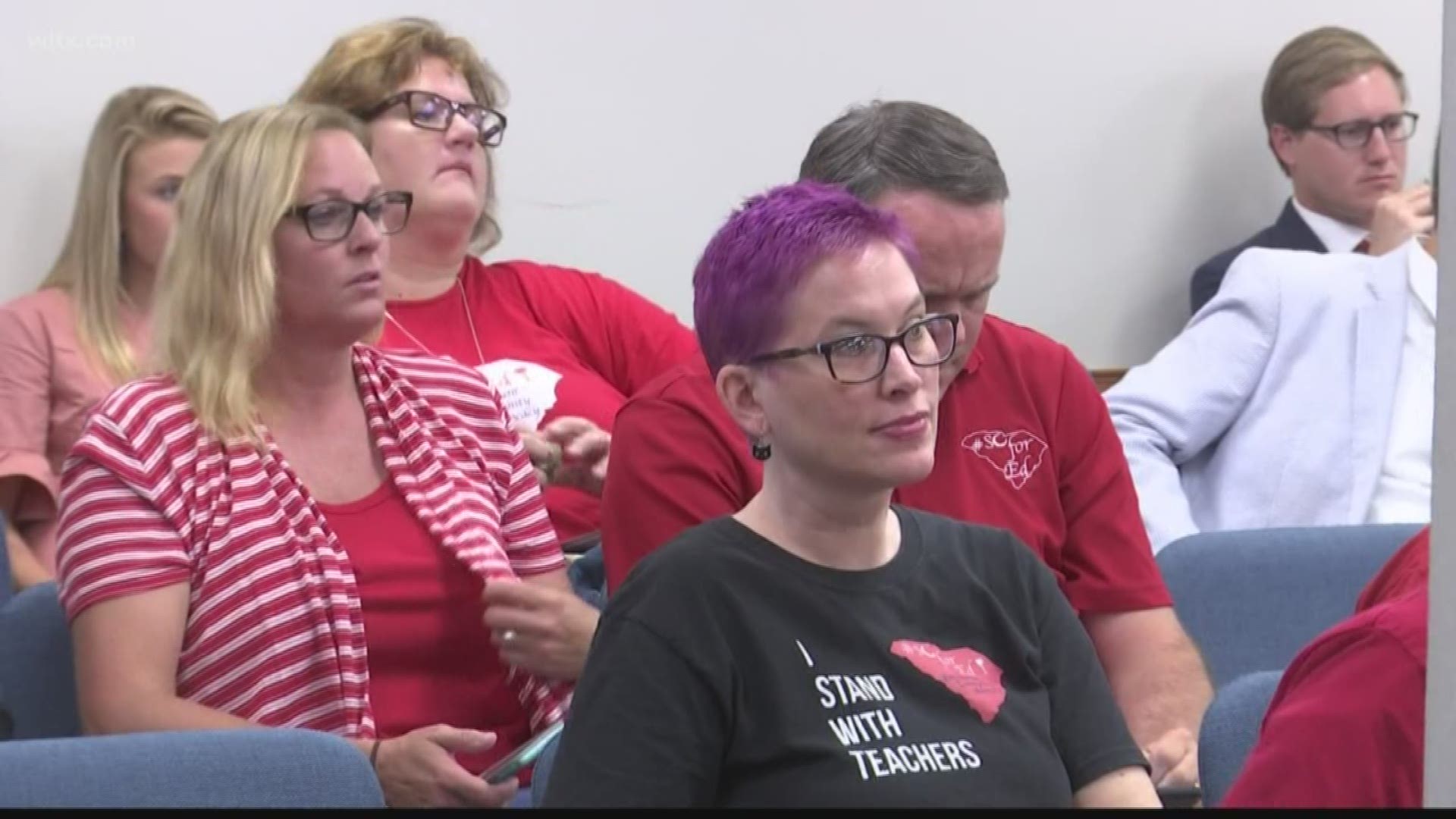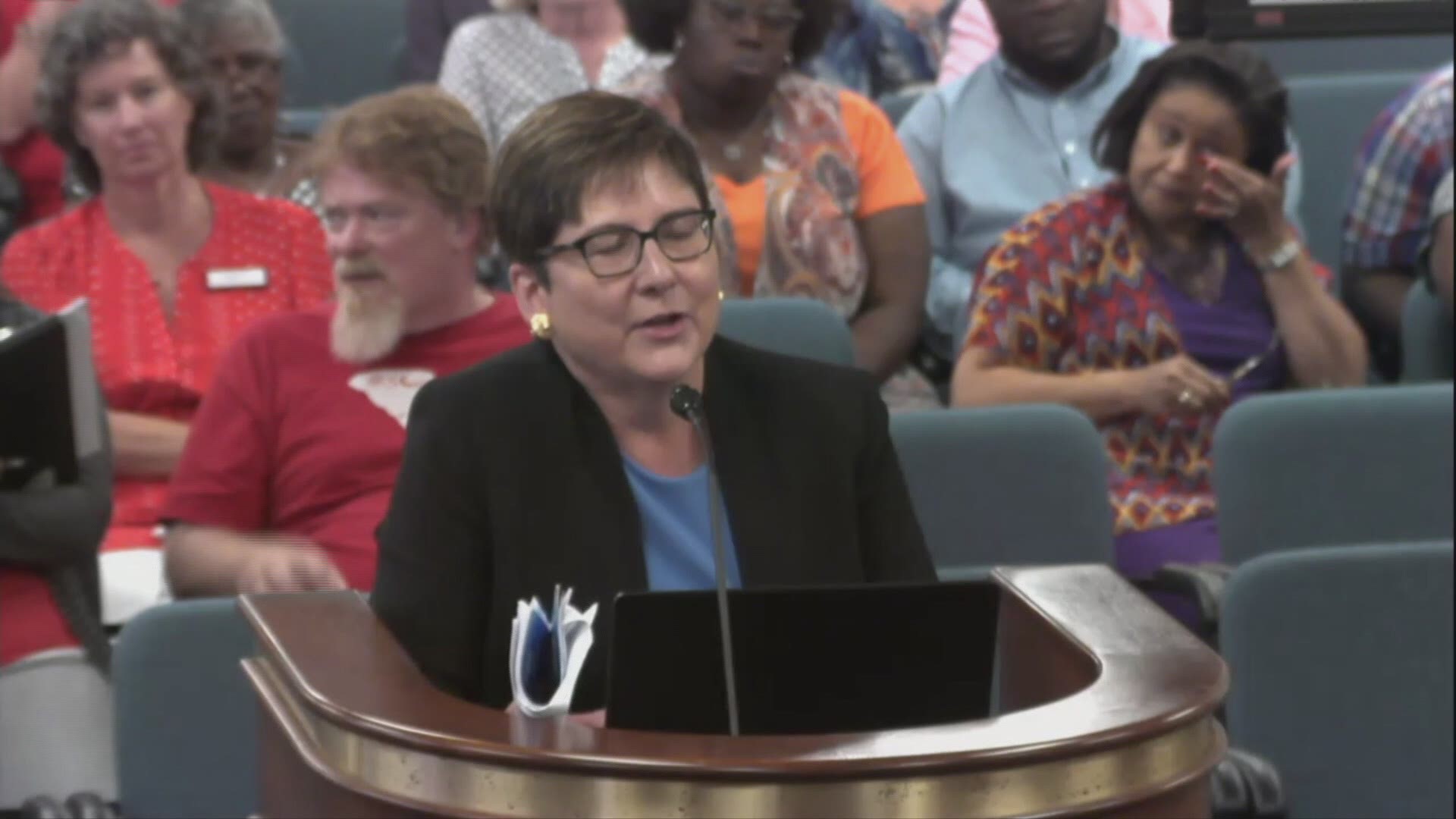COLUMBIA, S.C. — The Senate Education Committee’s subcommittee met Monday to hear comment from South Carolina educators and the public about the accountability and governance sections of the South Carolina Career Opportunity and Access for All Act.
Senator Greg Hembree called the session, he said, because the Legislative calendar and issues surrounding Santee Cooper did not allow time for proper discussion and review of the education bill during regular session.
Hembree said that the SC Legislature is constitutionally mandated to provide education for the citizens of the state and that the body had to step in and fix a failing system.
If a locally elected school district doesn’t work, he said, the state “has to be bold and willing to look at the systems we created that aren’t working.” The issue of takeover “may not politically popular in a lot of districts, but it’s our responsibility, we can’t just kick it down the road.”
State Department of Education Superintendent Molly Spearman began the morning’s presentations talking about district takeovers and consolidations in her opening remarks.
Spearman stated the Department of Education is currently in charge of three school districts in South Carolina -- Allendale, Williamsburg, and Timmonsville (Florence 4) – replacing local school boards with representatives from the department and local school principals and teachers. In all three instances, Spearman says, the parents were supportive of the Department’s takeover.
One of the Department’s proposals is for local school boards to have some sort of stakeholder group to take on important topics of improvements in lower performing schools -- to address achievement gaps, alternative programs, provide a class for parents on policy and resources, and look at sustainability in the education personnel pool.
One section of the Education Bill would create a tiered system of technical assistance, based on building capacity in lower performing schools. The current proviso can require consolidation of smaller districts – Spearman said that 8 South Carolina school districts plan to consolidate by Aug 1 – and charter school creation is option.
Teachers from around the state who had signed up to speak at the committee meeting disagreed with Spearman that charter schools are a viable solution to fixing what’s wrong with the education system in the state.
While there was agreement that local school districts should be more innovative in the approach to education, when the issue of charter schools was broached, the consensus was that they tend to be unaccountable to parents and school district officials and are often run as a for-profit business. One speaker said that turning to charter schools or public/private partnerships would be a way of the Legislature to evade the responsibility of providing education to the children of the state.
The teachers placed more emphasis on high-stakes testing and test results that rank school performance (school report cards), how school report cards are affected by the number of disciplinary issues in the schools and the pressure some educators feel to not report problems or issue suspensions or detentions, and the lack of support for mental health issues suffered by students and teachers alike.
Melanie Barton was one of the speakers to follow Spearman. As the Executive Director of the SC Education Oversight Committee, Barton stresses accountability in the state’s school system.
She supports a method to identify schools that would require intervention at the state level – as well as an accountability plan for returning operation back to the local level after certain goals are met.
Barton says that the state needs to ensure that all students in South Carolina are provided the same educational opportunities through standardization. “We’re not where we need to be in South Carolina,” she said.
“If I had a magic wand,” said Barton, “it would be to change the mindset of South Carolina. That these kids can achieve at a national level. We can do this.”
Senator John Matthews brought up the issue of sustainability and the impact of economics and demographics have on local school districts. Matthews cited reports showing the average age of a white person in South Carolina is 45, the average African American is 34 and the average age of a Hispanic citizen in the state is 21; and that the middle class in the state are not having as many children.
“We’re getting more poverty,” he said, “which is a different kind of need, and somehow we’re going to have to address that. The demographic shift is there…it’s already showing up in our school system. Most of the students that are coming in (to the school system) are coming with less.”
“We all have to get them to the same point,” said Barton. “That’s the hard part.”


